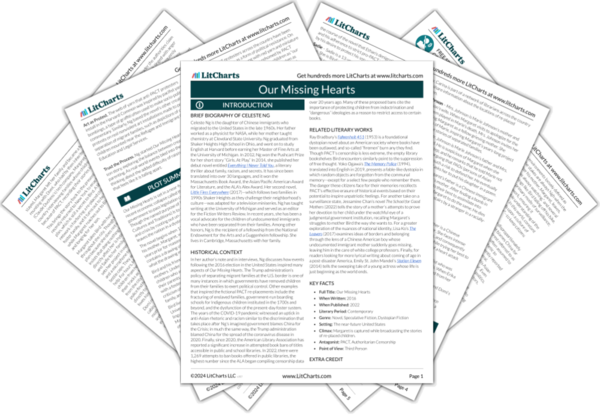Mr. Johnson’s comments point again to the isolating effects of racial discrimination, which can cause minorities to look out for members of their own group and no one else, regardless of similar experiences. Marie’s ability to draw parallels between her personal history and PACT child removals is empathic but—in her father’s view—naïve and idealistic. To Margaret, both Marie and Mr. Johnson’s positions have merit. Mr. Johnson’s memory of Marie’s joy again emphasizes her individual importance, especially to her parents. Margaret’s idea that no poem can capture a person’s essence reflects on the limitations of art.
